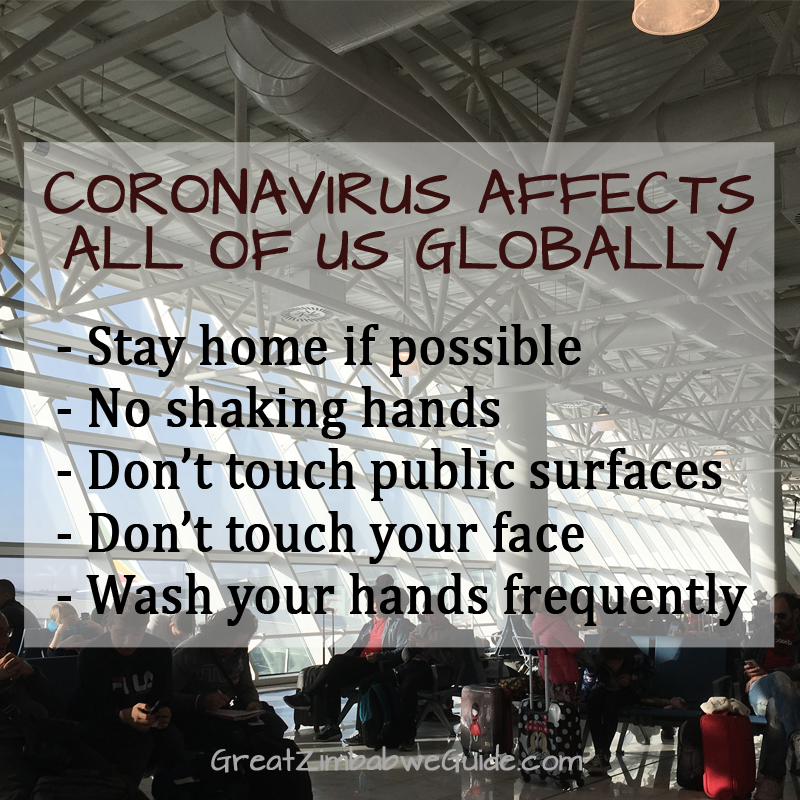 Coronavirus (COVID-19) is a GLOBAL pandemic. It is not a country-specific problem any more; it is a worldwide health concern with cases in 189 countries across the globe.
Coronavirus (COVID-19) is a GLOBAL pandemic. It is not a country-specific problem any more; it is a worldwide health concern with cases in 189 countries across the globe.
I’ve seen some travel companies advertising Zimbabwe as a “safe” place to visit at the moment, some even saying that there’s never been a better time to visit Zimbabwe. I can only throw my voice into the ring and say: Nowhere is “safe” right now, and there’s never been a better time to STAY AT HOME. Promotional travel messages like that are indicative of the desperate state that the Zimbabwean tourism industry is in, but they are also inaccurate and potentially harmful. There is no evidence to support that Zimbabwe is “safe” from the coronavirus: to date (23 March 2020) the country is only starting its journey down this road, with 2 cases being recorded so far. Zimbabwean safaris may be situated in sparsely populated areas, but in order to get there, visitors travel through their own countries, international airports or border crossings. These transit areas are risky in terms of spreading the virus, but they are also under heavy governmental restrictions in many countries.

Just to drill this in: COVID-19 is spreading at such a rate that many more people than usual (usually already ill ones) need hospital care. Some people who get the virus will struggle to breathe and will need specialist equipment in order to recover. No country in the world has the healthcare facilities to look after a sudden large influx of ill people at the same time. That’s why they’re taking the coronavirus so seriously. The shortage of facilities means that some people won’t be able to get the right care, and more people than usual may die. It also means that all the other non-infected people who need medical care (e.g. cancer therapy, accident & emergencies, pre- and post-natal care, routine surgeries just to name a few) may be compromised and not get the right help they need either. The knock-on effects of healthcare shortages are massive.
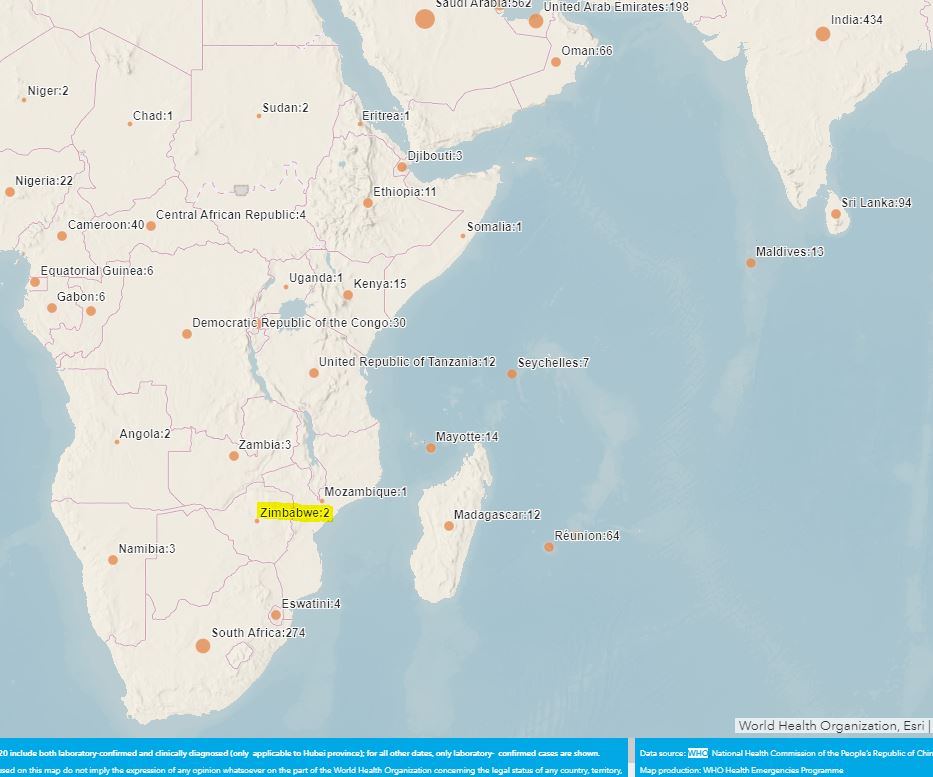
Some people who have the virus do not know they have it yet, and therefore spread it without knowing it. The best way to stop many people from getting the virus at the same time is to avoid physical contact with others, avoid touching public surfaces/handles/touchpads, and withdraw to coughing-distance away from others (2 metres). As these things are almost impossible to do effectively in daily life, many governments and health services around the world are asking people to stay home if they can. It’s obvious that the economic repercussions of staying home are eye-watering. The social and psychological repercussions of staying home are heart-wrenching. But we are being asked to stay at home anyway. This should tell us how serious it is. No government would tell their workforce to stay at home unless they thought there was no other option.
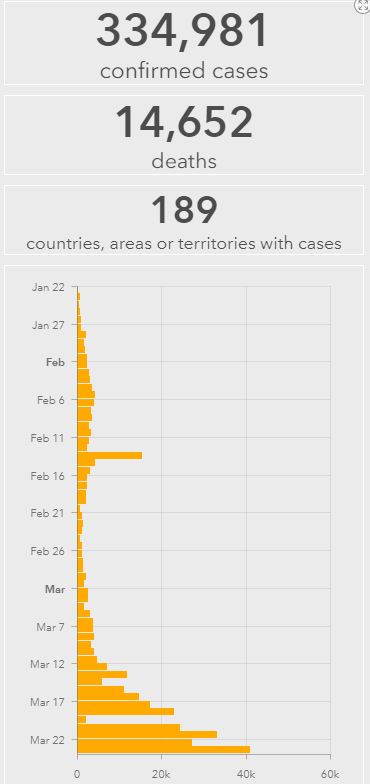
Hopefully, this pandemic will be a once in a lifetime event, thanks to vaccines and treatments in development. Most of us will come out the other side in a few months’ time and evaluate whether we are merely bruised, or cut to the bone. There have already been over 14,000 deaths worldwide. What might the death toll be when this is all over? In six months’ time, I don’t want to say to myself, “I could have done more”. I want to take action to know that I did what I could to play my part in slowing the spread of this virus. That’s why I’ll be staying at home for the foreseeable future. That’s why I’m advising against all recreational travel until the spread of the virus has slowed down. Even travel to, and within, the great country of Zimbabwe. It is extremely sad, but extremely necessary.
Please stay informed by reading credible sources. The World Health Organization (WHO) is the best place to start.
WHO gateway page on coronavirus: https://www.who.int/emergencies/diseases/novel-coronavirus-2019
WHO page on mythbusters and false news about coronavirus: https://www.who.int/emergencies/diseases/novel-coronavirus-2019/advice-for-public/myth-busters
WHO advice on how to protect yourself: https://www.who.int/emergencies/diseases/novel-coronavirus-2019/advice-for-public
WHO advice on when and how to use masks: https://www.who.int/emergencies/diseases/novel-coronavirus-2019/advice-for-public/when-and-how-to-use-masks
WHO advice on parenting in the time of coronavirus: https://www.who.int/emergencies/diseases/novel-coronavirus-2019/advice-for-public/healthy-parenting
Foreign and Commonwealth Office / UK advice on travelling to Zimbabwe: https://www.gov.uk/foreign-travel-advice/zimbabwe
Foreign and Commonwealth Office / UK advice on returning home from abroad: https://www.gov.uk/guidance/travel-advice-novel-coronavirus#if-youre-abroad-and-you-want-to-return-to-the-uk
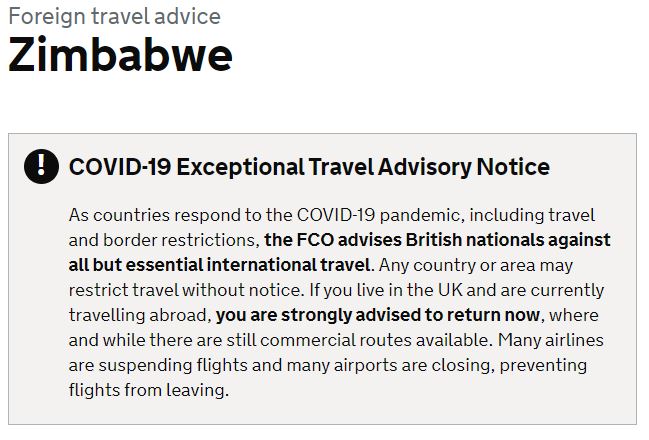
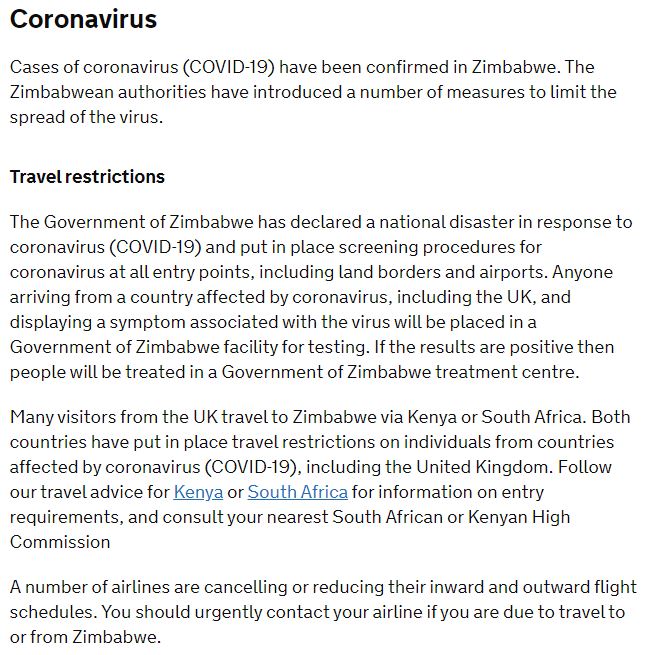
I’m advising against all recreational travel until the spread of the virus has slowed down. Even travel to, and within, the great country of Zimbabwe. It is extremely sad, but extremely necessary.

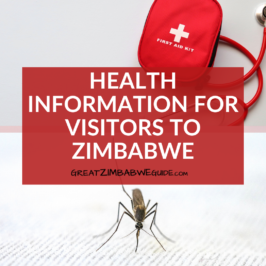
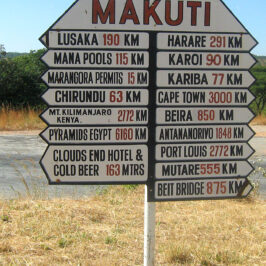
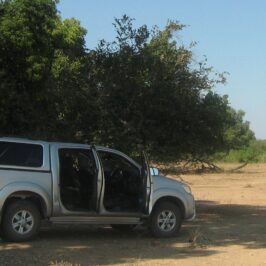




Leave a Reply